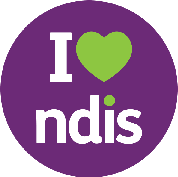Support coordination is a crucial service under the National Disability Insurance Scheme (NDIS) that helps participants understand and implement their plans. A support coordinator acts as a guide and connector, linking participants to services, mainstream supports, and community activities that align with their goals. At Centre of Hope, we believe that support coordination is more than just managing services. It is about empowering participants to build independence, foster community relationships, and live fuller lives.
In this article, we will explore what community integration means under the NDIS, the role support coordinators play in achieving it, the practical strategies they use to build independence, and how you can access this vital service.
What Is Community Integration and Why It Matters?
Community integration (often called community participation in NDIS language) means meeting people with similar interests and joining in social and community activities (NDIS community participation). It can look like going to a local café, joining a sports team, volunteering, or any activity you enjoy with others (NDIS social and community participation guidelines).
The NDIS emphasises that participation helps people feel included and connected, build friendships and networks, and grow confidence and independence. Research and the NDIS outcomes framework show that successful integration leads to outcomes like “participation in community & social activities”, “feeling valued and belonging” and strong social connections.
Benefits of community integration include:
- Belonging & purpose: Feeling welcomed in the community and having meaningful activities can give life direction and purpose.
- Friendships & support networks: Joining clubs or groups helps people make friends and build natural supports.
- Skill development: Trying new activities (sports, arts, volunteering) builds life skills and confidence.
- Independence: Participating in community life helps people feel safer and more capable on their own.
These goals – inclusion, relationships and growth are at the heart of NDIS planning. In other words, community integration is not just “doing things in town”; it’s about living life fully and being valued in society.
For more about the types of services that can help you participate, visit our NDIS services page.
The Role of a Support Coordinator in Community Integration
An NDIS support coordinator is like a connector and coach. Their job is to help participants make the best use of their NDIS plan and community resources. For community integration, this involves:
- Service navigation: Support coordinators link participants with the right supports and services. They can help you find educational programs, health services, social or recreational groups, and other activities in your area. For more information, see our guide on understanding NDIS support coordination.
- Building confidence and decision-making skills: Coordinators coach participants to manage aspects of their plan and try new things. They explain the plan’s funded supports and gradually help participants make their own decisions.
- Connecting with mainstream and informal supports: Beyond paid disability services, coordinators link participants to mainstream programs (e.g. government services, employment agencies, local sports clubs) and natural supports (family, friends, neighbors).
The NDIA states that support coordination aims to help participants “build the skills they need to understand and use their NDIS plan.” For more advanced needs, Level 3 support coordinators offer specialist services to unlock complex plans.
Strategies Support Coordinators Use to Empower Independence
Person-Centred Planning
Support coordinators start by placing the participant at the centre of all decisions. This means they listen to your goals, preferences and aspirations, and plan supports around what matters to you.
In practice, this might involve:
- Collaborative goal-setting
- Respecting personal choices and values
- Strength-based focus
You can read more about personalised approaches in our article: Psychosocial Recovery Coach vs. Support Coordinator.
Coaching and Capacity Building
Support coordinators act as coaches, building your skills and confidence over time. They teach you how to get things done. For example:
- Plan management coaching
- Skill development (e.g. using public transport, joining events)
- Confidence building
To understand how this aligns with your NDIS budget, visit NDIS Funding in Australia: What It Covers and What It Doesn’t.
Promoting Choice and Control
A core NDIS principle is that participants have choice and control over their lives. Coordinators ensure:
- You are given multiple options
- Your voice is prioritised in decisions
- You lead the direction of your supports
If you are choosing a new support coordinator, check out our article: 5 Essential Questions to Ask When Choosing Your NDIS Support Coordinator.
Overcoming Access Barriers
Many participants face practical barriers to community participation. Coordinators help by:
- Arranging transport services or training
- Booking certified interpreters or alternative formats
- Advocating for accessible venues and programs
For participants facing legal or social access barriers, our article on NDIS Support for Participants in the Justice System offers further guidance.
Real-Life Example: Emma’s Art Class Adventure
Emma is a young woman who loves painting but had never joined a class due to anxiety and transport issues. With her support coordinator’s help, she:
- Found an inclusive community art studio
- Arranged accessible transport and support
- Received coaching for social confidence
- Booked an interpreter for her friend
After several weeks, Emma made friends, gained confidence, and now exhibits her paintings at community events. This story shows how coordinated support can transform a participant’s life – from isolation to engagement, from anxiety to empowerment.
How to Access Support Coordination Through Your NDIS Plan
Eligibility
Any NDIS participant can request support coordination if it is considered reasonable and necessary to help you use your plan. Those with complex needs or limited support networks often benefit most.
Budget Category
Support coordination is funded under the Capacity Building category. You must request it specifically during planning meetings.
Requesting It in Your Plan
- Clearly explain how it will help you manage and achieve your goals
- Mention any difficulties you’ve faced without coordination
- Include evidence such as medical letters or reports
You can also review our NDIS Funding in NSW article for region-specific insights.
To request services from the Centre of Hope, submit a referral form or book an appointment.
Bringing It All Together
Support coordination is a powerful way to empower NDIS participants. By connecting you to the right services, building your skills, and prioritising your choices, a support coordinator helps turn goals of independence and community integration into real life.
If you or your loved one are seeking greater independence or connection, Centre of Hope can help. We are a registered NDIS provider, and our team of support coordinators are ready to guide you.
Contact us today to start your journey.
FAQ
What is the goal of community integration under the NDIS?
Community integration helps participants build meaningful connections and take part in everyday community life. It promotes confidence, friendships, and personal growth.
What does a support coordinator actually do?
A support coordinator connects you with services, helps you use your plan, builds your skills, and supports you to become more independent.
How can support coordination help me be more independent?
By teaching you to manage providers, understand your funding, and build confidence to navigate services on your own.
Is community participation funded under my NDIS plan?
Yes. Depending on your goals, it may be funded under Core Supports or Capacity Building Supports.
How do I choose the right NDIS support coordinator?
Choose someone who respects your goals and listens to your needs. Visit our guide on how to choose the right support coordinator for practical tips.
Explore more articles at our NDIS Blog.








